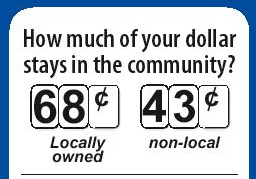Update: Gov. Schwarzenegger vetoed the measures.
Two bills, awaiting Gov. Arnold Schwarzenegger’s signature, would give cities greater power to block the advances of big-box retailers.
One (SB1523) would require cities to commission an economic impact report prior to approving any store larger than 100,000 square feet. The report would assess the impact of the store on existing businesses, jobs, wages, retail vacancy rates, the cost of public services, and the number of vehicle miles consumers in the region travel for shopping. The developer would be required to reimburse the city for the cost of the analysis.
The bill also stipulates that the city hold a public hearing after the report has been prepared and at least 30 days prior to deciding whether to approve the project.
Supporters say the bill would give city officials and citizens crucial information about the economic costs of superstores, and provide cities with more authority to reject such developments. The bill’s preamble notes that the proliferation of superstores is causing “local grocers, who yield a greater community return on investment, [to be] driven out of business; less community access to viable superstore alternatives; lower wages and benefits paid to grocery workers by superstore retailers; and a host of complex land use, traffic, and fiscal impacts.”
The bill passed both houses of the California legislature with nearly 60 percent approval. Gov. Schwarzenegger has not yet taken a position on the legislation. Two years ago, he vetoed a similar measure that applied only to supercenters — large stores that combine both general merchandise and a full grocery department.
The second bill (SB1818) would allow cities, in certain cases, to recover legal fees when big-box retailers sue to overturn local ordinances and zoning decisions. Cities would be entitled to recover their costs if the retailer loses the suit and the court finds that the company filed the suit “to intimidate the local governmental entity to abandon its zoning decision because of the retailer’s substantially greater financial resources to conduct the litigation.”
The bill was drafted partly in response to two lawsuits filed by Wal-Mart against the city of Turlock. The suits — one in state court and the other in federal — sought to overturn a city ordinance restricting the construction of supercenters. Both courts upheld the ordinance as a legitimate use of the city’s zoning authority, but the city incurred some $370,000 in legal fees.
If signed into law, SB1818 would apply to suits in progress as of April 2006, allowing Turlock to pursue recovering these costs from Wal-Mart.



